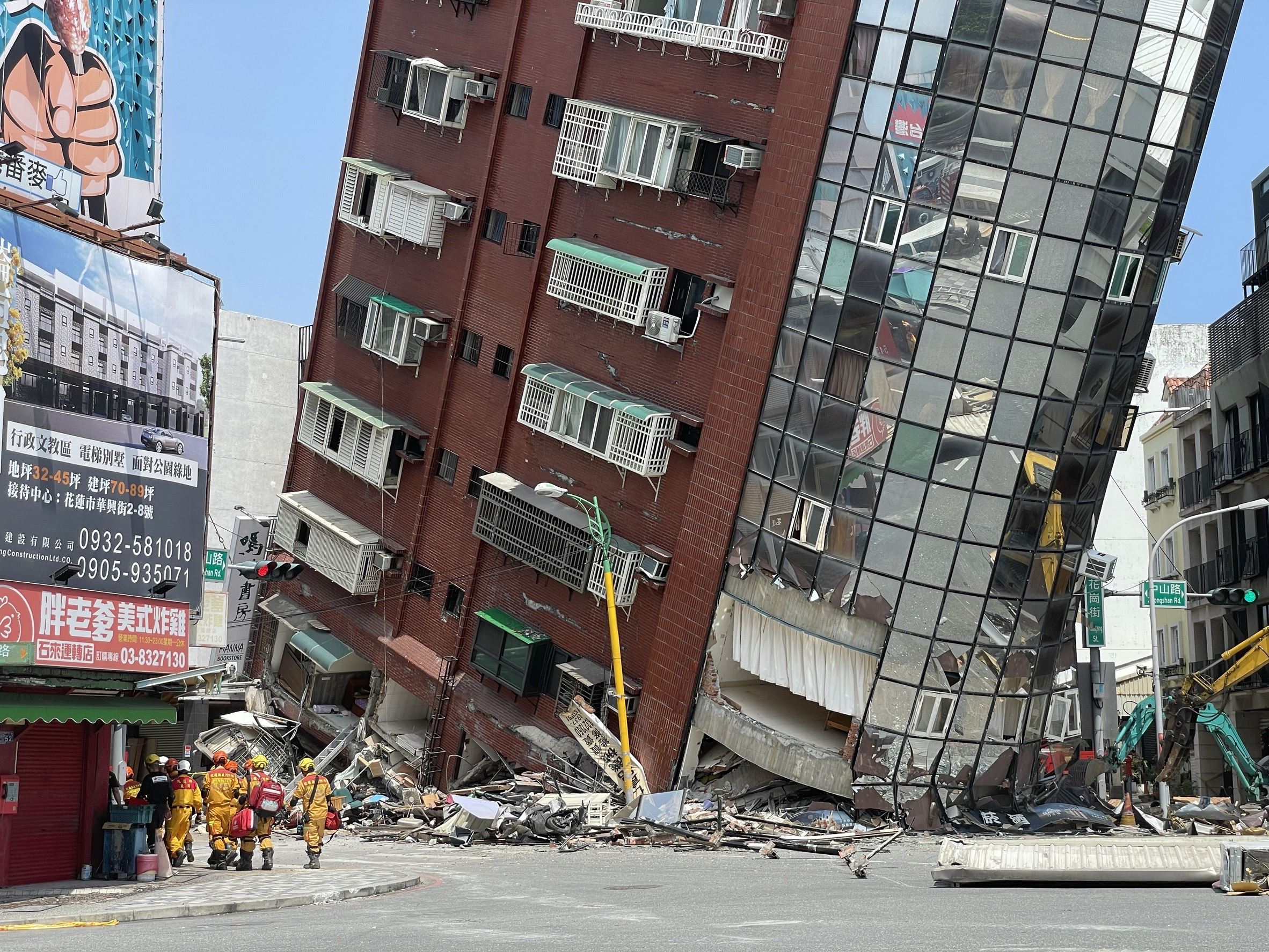
Australia has a lot to learn from Taiwan but very few avenues for learning.
A powerful 7.4 magnitude earthquake struck Taiwan on 3 April. Amid severe damage and landslides, few were killed in the east-coast city at the epicentre, Hualien. There are lessons here.
Twenty-five years ago, a comparable quake of 7.7 magnitude in Taiwan killed 2400 people and injured thousands. Even allowing for differences between the two earthquakes, it is clear the government and people of Taiwan have since managed to mitigate risks through construction codes, enforcement, remedial engineering and improved training in emergency rescue.
Australia cannot learn from that experience as well as it might because the Taiwanese connections of our local governments, engineers, emergency services and charitable relief agencies are wafer thin.
As it is for mitigation of earthquake damage, so it is in many fields: we are widely disadvantaged by our limited contact with Taiwan. Yet we needn’t be.
True, Taiwan does not enjoy the level of international cooperation merited by the challenges and risks it faces, because it is excluded from major international organisations and has difficulties sustaining routine government-to-government cooperation with countries that recognise the People’s Republic of China (PRC). It confronts challenges as grave as any country does, not just from earthquakes but also pandemics, floods, cyber attacks, grey-zone disinformation and foreign interference in elections. It does this without the benefit of international cooperation that such risks normally promote. Experience has made the Taiwanese a hardy people.
Under one-China policies, the Australian government and others that recognise the PRC restrict their engagement with the government of Taiwan. Canberra is reluctant to cooperate publicly with Taipei through the normal means of trade agreements, ministerial contact or departmental and agency collaboration.
It is not just Taiwan that loses out. The island has much to offer Australia in return for support by sharing skills and experience in managing earthquakes and other natural disasters, along with pandemics, grey-zone tactics, cyber security and military preparations.
We can take it as given that no Australian federal government is likely to do much about that. Yet the limitations that it accepts need not stop the rest of us. Australia’s community organisations and sub-national governments do not work under the same constraints as the federal government and so are well placed to pick up where Canberra leaves off, not just in trade and investment but in sharing skills and experience in other matters of common concern. Community organisations and sub-national governments could do more to draw on Taiwan’s experience and expertise while building greater familiarity through people-to-people ties that would stand both sides in good stead in the event of a wider regional crisis.
Only timidity stands in our way. The Australian government, to quote the Department of Foreign Affairs and Trade, ‘strongly supports the development, on an unofficial basis, of economic and cultural relations with Taiwan including a range of two-way visits, state, territory and local government contacts, trade and investment opportunities and people to people links.’ Opinion polling suggests Australians broadly want to help Taiwan. They share similar democratic values with Taiwanese, and Australia is comparable to Taiwan in population and social and economic development. Conditions are in place for closer community and local government engagement between the two societies. What is missing is knowledge, familiarity, encouragement and effort.
On the Taiwanese side, many non-government actors, such as foundations, think tanks, and social entrepreneurs, have shown a growing interest in engaging with their Australian counterparts. Taiwan’s think tanks have been quick to take advantage of their government’s New Southbound Policy, for example, to reach out to Australia.
The Prospect Foundation and the Taiwan Asia Exchange Foundation (TAEF) routinely invite Australian political leaders and experts to participate in high-profile annual forums. Doublethink Lab, arguably the region’s most capable non-government body focussing on foreign government interference and cyber operations globally, covers the Australian experience of foreign interference closely. The publishing arms of Taiwan’s think-tanks provide good coverage of Australia, including the first major study of Australian relations with Taiwan to appear in print in many years, TAEF’s Taiwan and Australia: Advancing the Partnership of Four Decades.
Few comparable initiatives have emerged from the Australian side.
Experience shows that expanded community engagement between the two sides correlates closely with levels of state and local government engagement. Queensland and Victoria offer contrasting examples.
Queensland has a Trade and Investment Office in Taipei, so, not surprisingly, six of the seven Australian cities with Taiwanese sister-city links are in that state. Taiwanese and Queensland cities also cooperate in urban-design forums. Investments follow.
The Victorian government has little connection with Taiwan, so no Victorian city has any, with the result that opportunities for mutual learning and cooperation go begging.
A proportionate Australian response would match new initiatives coming out of Taiwan one-for-one. We are not there yet.
A disproportionate response would make maximum use of the latitude allowed to local governments and community organisations under Australia’s one-China policy to fill gaps in national government engagement with Taiwan. Civil-society organisations and state and local governments in Australia could and can do more. If they are prepared to reach out and listen, Australians stands to learn many useful lessons from Taiwan’s resourceful people.

